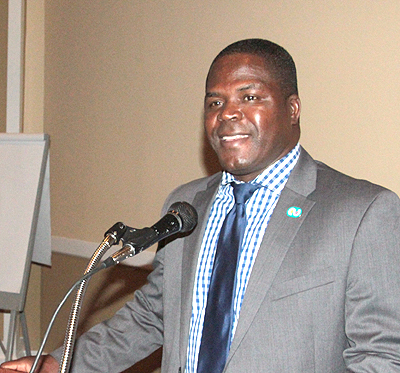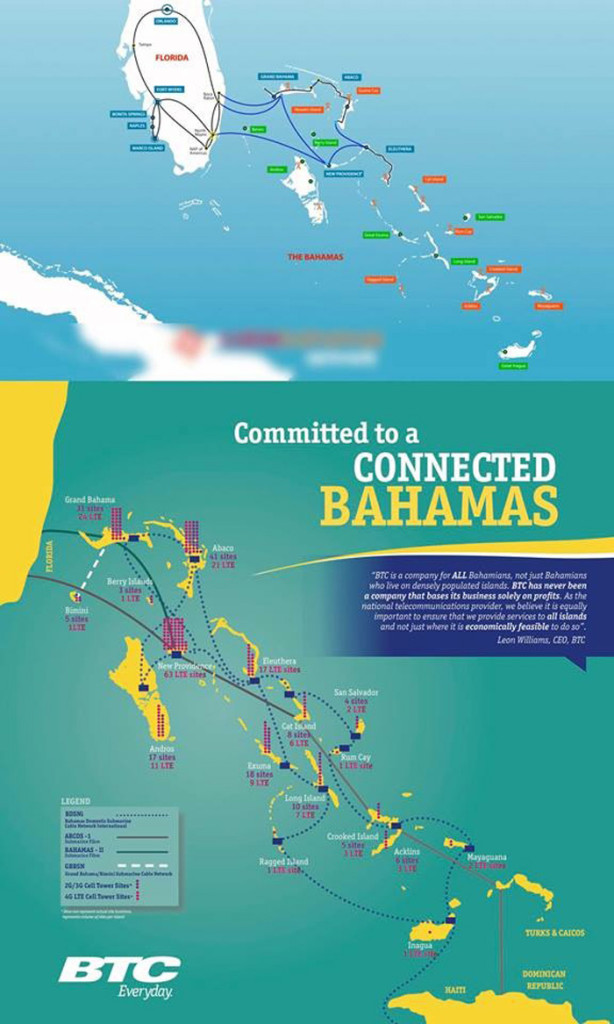
By Gena Gibbs
Bahamas Information Services
NASSAU, The Bahamas — The Bahamas hosted a productive symposium for regional management consultants at which local and Caribbean project managers convened on development of the regional project management industry at the Caribbean Institute of Certified Management Consultants (CICMC) conclave at Melia Nassau Beach Resort, October 14th to 16th.
State Minister for Investments at the Office of The Prime Minister, Khaalis Rolle, gave closing remarks to thank organizers Precenta Chase, Regional President, and Don Demeritte, Local President, for providing the opportunity for regional project managers to have dialogue on uniting to benefit from the untapped $2 billion industry.
He said: “On behalf of the Bahamas Investment Authority and the Office of the Prime Minister, I extend warm greetings. I anticipate that over the last several days, you shared your individual and collective visions for the future of your sector. You deliberated on methodologies and chartered the way forward on how best you could contribute to the strengthening and growth of our respective economies and indeed the Caribbean region.”
He added that he noticed one of the topics discussed that week was “challenges and opportunities,” which is what consulting is all about: providing solutions to problems. He also discussed how the Caribbean region suffers from the inequity of being able to compete internationally.
“The first point is based on the challenges you face as Caribbean consultants, living and operating in a post-Colonial environment, where many governments and large businesses are predisposed to larger multinational consulting groups providing advice on problem solving.
“The estimated value of consultancy fees paid annually in the region is around $2 billion. I cannot definitively say what percentage of that is accessed by regional management consultants, who exist outside the large established firms, but the non-empirical evidence would suggest that it’s far below what [regional consultants are] reasonably entitled to.”
Minister Rolle said governments have to assist smaller entities to build capacity by giving them the opportunities, under special dispensation, to compete against the major entities that provide consultancy services.
“The profile of the Caribbean economies will continue to go through massive changes, as the world becomes an even smaller place to do business. Historically, the majority of Caribbean economies were commodity and industrial based, relying heavily on non-reciprocal trade arrangements as an economic development tool,” said Minister Rolle.
“The dependency on these sectors of the economy is diminishing and we will continue to see a greater shift toward service-oriented industries because of the effects of initiatives, such as the WTO membership and the gradual phase out of these non-reciprocal trade arrangements.”
Minister Rolle said we have to look at ways to enable specialized services such as management consultancy, to ensure an orderly transition to a new platform of growth and development, bearing in mind the $2 billion market size.
“Your grouping must be seen to have the same calling card as the larger entities involved in the consultancy sector,” said Minister Rolle.
“This allows me to ‘segway’ into my second point, which is ‘Expandable Opportunities’. The size of the opportunity to create a stronger regional SME sector is about $1 billion, if your grouping is able to access about 50 percent of those fees, which are paid annually.”
Minister Rolle said accessing the market would be a major boost for the grouping, and would provide lots of down streaming benefits to other SMEs in the “Food Chain”. He added that the Bahamas Government recognized that it must institutionalize a philosophy of planning in its governance to change the course of the country.
“We have a political system and I think it’s not any different from many Caribbean countries, where we go through election cycles and we plan based on five-year windows. In the case of my political party, we call it a ‘Charter of Governance’. The Opposition party calls theirs a ‘Manifesto’. There’s nothing wrong with that. They are idea driven and are meant to solve an immediate problem. In many instances, some aspects are long term in nature, but the approach to solving those problems are usually very short term,” said Minister Rolle.
“The Government recognized that we are going through many, and I call it, ‘developmental challenges’, and we decided that we would implement a national development plan. And as a consequence, we also established an economic development and planning unit, which would be the entity responsible for implementing the plan.”
Minister Rolle said the Government partnered with the IDB through technical cooperation for the development of this national development plan, which will be one of the most historic activities for this generation because it seeks to establish a path for the growth and development of The Bahamas over the next 25 years.
“The reason we are embarking on this initiative is to better manage the developmental challenges we face as a nation. The benefit of doing something like this, particularly for local consultants, is that we now have a structured approach to integrate what it is you do into our daily mechanism,” said Minister Rolle.
“It is important for me to provide you with the historical context for this private/public initiative, in which we are engaged. It began on a national level when the Government of The Bahamas hosted a highly successful economic recovery strategy meeting in September 2012.”
Minister Rolle said the meeting was closely followed by other investment conferences that included sessions in Grand Bahama. He added that successful strategies require a commitment from the government and all stakeholders to implement a strategy and follow through with its successful implementation. Rolle stated that our government understands this and have taken the necessary steps, with IDB and other stakeholder assistance, to develop a clear strategy in enabling an infrastructure to establish this task.
“The commitment of the Government and the commitment of all stakeholders in the economic development process are not only essential, but it’s a key ingredient to successful outcomes,” said Minister Rolle.
“All of the actors have a key role to play. The role of the government is clear, the role of the private sector is clear and so is the role of the multi-lateral agencies, who issue many of these consultancy contracts on behalf of the government and NGOs. It is now for us a function of execution.”
Minister Rolle said he anticipated this event would concretize and formalize ideas and recommendations into action plans for implementation by the government and other stakeholders, as part of the National Development Plan’s process. He concluded with his belief that the CICMC will function as a conduit to allow these courses of action, as it aims to bring a structured approach for public/private dialogue, so government and stakeholders can provide inclusive, transparent, and accountable policy-making, benefiting the Management Consultancy sector, here in The Bahamas and other Caribbean territories.












